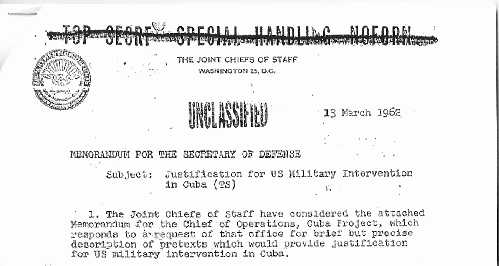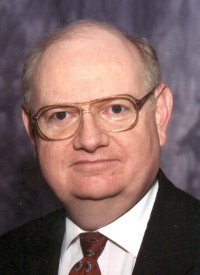(Article changed on August 30, 2013 at 07:42)
(Article changed on August 29, 2013 at 17:16)
"It is a capital mistake to theorize before one has data. Insensibly one begins to twist facts to suit theories, instead of theories to suit facts." --Sherlock Holmes, "A Scandal in Bohemia."
I say, that old chap Sherlock Holmes sure had George Bush pegged, what? But Bush's twisting of facts (Administration modification of intelligence) to suit the agenda (attack Iraq/remove Saddam) is different from the mistakes we the people are making. After all that has come to light over the years, we still seem to fall for the official lines. Yet, while many of us are waking up to the realization that extreme corporate interests are taking over every aspect of life in every corner of the world, we still resist knowing or accepting too much for fear of being branded with that big "C" term, "conspiracy" theorist.
I sometimes find myself wanting to scream a line from another fictional character (George Bailey in It's a Wonderful Life): "Can't you understand what's happening here? Don't you see what's happening?" In my career as an RF (Radio Frequency) technician, in troubleshooting circuits and other wireless systems issues, I often have to ask myself: "What if...?" and try to either reverse-engineer a problem to see what it will take to fix it, or take preemptive measures to try to keep an interruption from occurring. In a similar way, applying some past experiences in conspiracy theory might help us wipe the mud off the windshield to see what is really happening in the world and how we should respond to the problems. But first, that "C' word is really in the way, so we should see what we can do to get beyond that huge stumbling block.
In writing on the assassination of President Kennedy, Peter Dale Scott introduced us to the term Deep Politics, writing: "I have always believed, and argued, that a true understanding of the Kennedy assassination will lead, not to 'a few bad people,' but to the institutional and parapolitical arrangements which constitute the way we are systematically governed. The conspiracies I see as operative, in other words, are part of our political structure, not exceptions to it." [Scott, Peter Dale. Deep Politics and the Death of JFK. Los Angeles, California: University of California Press, 1993, page 11.]
In a "what if" scenario, suppose some plans made by the Joint Chiefs of Staff in the early 1960s had actually materialized, and yet the documents that detailed their plans remained unknown or were otherwise destroyed (our scenario is enabled through the fortuitous disclosure of Operation Northwoods documents). We would likely have had people with some inside information (possibly obtained from whistleblowers) start publishing their theories that the U.S. was really behind some of the atrocities that hit some of our citizens, which would have brought about the usual rejection and ridicule that goes along with something so "obviously' outside all plausibility.
Operation Northwoods memorandum by US Joint Chiefs of Staff/US Department of Defense
We can list several proposals by the Joint Chiefs from history that would have involved real violence and death. They include: creating some "Remember the Maine" incidents, such as blowing up a U.S. ship in Guantanamo Bay (which gives us some evidence that military insiders in the mid-20th century knew we had blown up our own ship in the late 19th century in a custom-made incident that caused over 200 American deaths); developing a Communist Cuban terror campaign in Miami and other Florida cities, and even in Washington D.C., to cause widely publicized casualties, mostly among Cuban refugees; and perpetrating a host of elaborate incidents, including the explosion of a few plastic bombs at carefully chosen locations, to prove that the Cuban government was irresponsible and out of control. Some believe the Joint Chiefs were way outside the scale of sanity in proposing these things, but my argument would be that, in order to get to the upper echelons of military leadership, that is exactly the kind of thinking in which you have to engage. Even in our own day, the general who declared that it is fun to shoot people still had a stellar military career after making that statement. And from all appearances--from the outside looking in, of course--if we indeed blew up the Maine to assist in instigating the Spanish/American War, that kind of military thinking has been with us for a long time.
Deep politics begins to look like a much better way to define such plotting, especially when the word "conspiracy" is thrown around to purposely cause an immediate, defensive and negative reaction by the public en masse. That in itself is a deep-politics maneuver to control our thoughts and reactions, and to further get us to let down our guard against runaway irresponsible government.
One ought to be thinking now about how these historical military mindsets might be playing out in our own recent wars, and particularly with regard to the situation with Syria. Interviews I had with two past military leaders of some note may be worthy of mention. Both occurred in during my research into the assassination of JFK. The first encompassed a series of telephone interviews with retired Army Major General Edwin Walker, a very right-leaning individual. The general was quite insistent in affirming Oswald's guilt, but after pressing him a number of times, and trying to get him out of his broken-record attitude, he finally admitted that what I was asking him was entirely plausible. I had suggested that, if the technology existed that would allow our intelligence community to accomplish a task, they really could do anything at all they wanted or designed to do.
My second interview was with retired Air Force Colonel L. Fletcher Prouty. Colonel Prouty was of the opinion that there would never be another war fought to the end, because of the threat that posed for bringing on a nuclear exchange. He based this on seeing how we did not "finish" the war with Saddam Hussein in the early 1990s. He did not live to see how that problem was eventually overcome. It is evident now that, by getting the world's governments behind us, it is possible to make a country suffer enough from restricted trade and a lack of essential imported items that it will allow international inspectors in to investigate, shut down, dismantle, or do anything else necessary to neutralize whatever they might have in the way of a nuclear (or other WMD) program. Then, after inspectors report that the country is "clean," along comes our unmistakable "intelligence" that tells the world that the country has attempted to purchase some additional items needed to further the work of mass-casualty weapons. In full recognition, of course, that this is not really the case and that no material actually exists, militarily speaking, we now know the way has been cleared for us to use our military might to its full extent. Buoyed by our international friends, who have been completely taken in by our "intelligence," we can take over the country and remove any outstanding remnants of the former government.
Has the Syrian government used chemical weapons? Perhaps. But I would not trust our intelligence, nor the other puppets of U.S. control and influence, to give us the straight story. It would not be beyond military protocol (of the basest kind) for the "rebels" to have been provided with the means to attack their own people with chemical weapons, so that the world would get behind their efforts to topple the government of Syria. We had been hearing of an event planned by al Qaeda to "change the face of history." Though we have been led to think more along the lines of conventional attacks of the kind al Qaeda has used in the past (car bombs, etc.), a chemical attack against their own people that could draw the United States and Russia into direct conflict would certainly change the face of history. We need to consider the "deep politics" involved in such operations and be aware of how they can be used to further sucker us into a conflict that we have no business touching at this point in time, if ever.
Is this over-the-top "deep politics" theorizing? Perhaps. But with what we have seen in the past, it is time we take into account the use the elites in the world make of deep politics, which includes using their vast media holdings to sell us, and the world, into falling into line with their desires.
Question everything!
Steve Osborn has worked in technical areas of the wireless industry for over 30 years and is a past congressional candidate. He began personal research in 1980 of American political assassinations, and testified to the Assassinations Records (more...)






